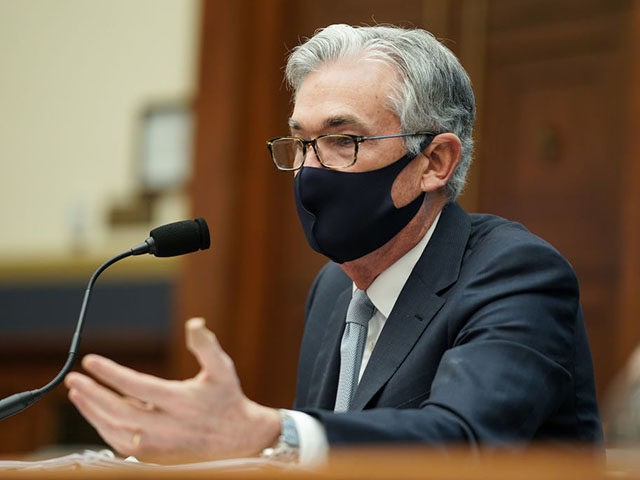The Federal Reserve will need to engineer a sharp decline in stock prices, housing prices, and Bitcoin prices in order to bring inflation back under control, according to Credit Suisse Group AG strategist Zoltan Pozsar.
In a note published late on Wednesday, Pozsar argues that efforts to tame inflation over the past few decades have been assisted by the fact that globalization was exerting a strong downward pressure on the price of goods. This meant that inflation was mostly a problem for the services side of the economy, which they could control by tightening financial conditions to tame home price appreciation and demand for labor.
This often resulted in a Fed-triggered recession, which Pozsar argues was part of the Fed’s plan to control inflation rather than an accidental policy overshoot.
This period of inflation has been led by a shortage of goods. Fed officials have acknowledged that there is little they can do to increase the supply of goods, Pozsar argues. And they have committed themselves to a version of full-employment tailored to our age of diversity, inclusion, and equity that rules out intentionally triggering an anti-inflation recession.
“Historically, the Fed used rate hikes to engineer recessions that generated the slack needed to keep inflation in check (‘opportunistic disinflation’),” Pozsar writes. “With the Fed’s “’updated dual mandate’ of inclusive low unemployment and the political imperative of redistribution through firmer wage growth at the bottom of
the income distribution, the Fed aiming to slow inflation via a recession is unimaginable. ”
The only alternative is for the Fed to deliver a “Volcker-style shock” to the market that will drive up volatility, drive down asset prices, and force people currently not working back into the workforce.
A bigger than expected hike and refusal to communicate openly would set off corrections in stocks, houses, and Bitcoin. This would bring back early retirees and make people currently living comfortably off stock gains and Bitcoin appreciation return to jobs.
“Maybe the Fed should hike 50 basis points in March, put an end to press conferences, and sell $50 billion of 10-year notes the next day,” Pozsar writes.
Poszar argues that the crash in asset prices would be a fair redistribution of wealth from capital to labor, somewhat reversing what decades of low volatility, low rates, and Fed bond purchases have engineered.
He also claimed it would not trigger a recession.
From Pozsar’s note:
A new Volcker moment should also mean a radical change in the Fed’s strategy and involve going from targeting rates to targeting quantities once again–not the quantity of reserves in the banking system, but the quantity of duration in the market-based shadow banking system to jolt all sorts of risk premia higher.
No, lower risk assets won’t kill growth. This is not a balance sheet recovery, and no, higher mortgage rates won’t kill growth either – wage growth at 5% can absorb higher monthly payments. The curve is flat and borderline inverted, and delivering slope into it can come from higher term premia engineered by the Fed, not only rate cuts as the “policy-mistake-in-the -making” crowd would have it…
The decisions of central bankers are always redistributive. For decades, redistribution went from labor to capital. Maybe it’s time to go the other way next.
What to curb? Wage growth? Or stock prices? What would Paul Volcker do?
Nothing in the Fed’s January minutes indicated anything like this scale of policy change, however. So if the Fed were to adopt a Pozsar style monetary policy of crashing financial and housing assets in attempt to expand the labor supply, it probably would not do so for several more meetings.

COMMENTS
Please let us know if you're having issues with commenting.